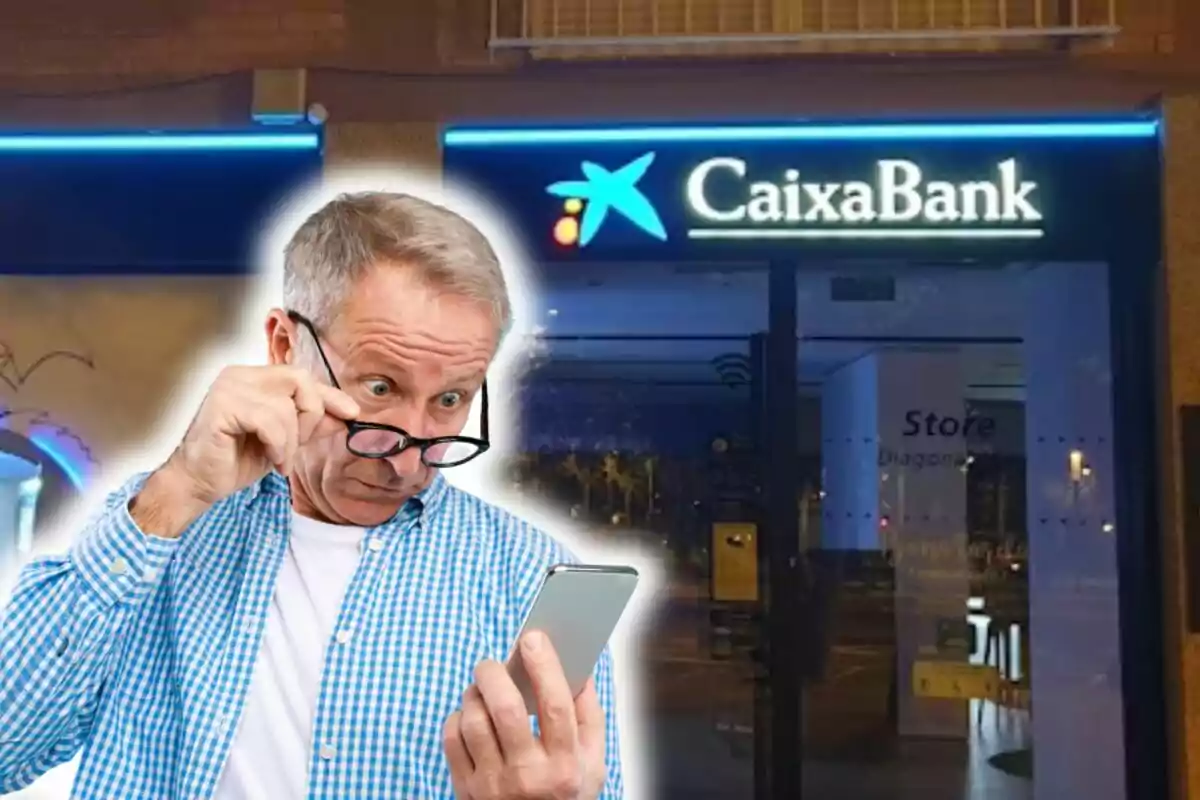
Urgent statement from CaixaBank: be very careful, this gesture can ruin you in seconds
CaixaBank has issued a warning to its customers about a scam that has affected many users
CaixaBank recently warned about a scam that is gaining ground. In recent months, we have witnessed an increase in frauds that exploit the trust people have in popular apps.
The methodology used by scammers is becoming increasingly sophisticated, and they have now decided to impersonate the WhatsApp technical support team. This scam not only affects regular users but also endangers the personal and financial information of millions of people.

CaixaBank warns about the WhatsApp technician scam
In this fraud modality, criminals pose as the app's technical support to steal users' accounts. The fraud begins with an unexpected call via WhatsApp from a number with a non-Spanish prefix.
When the user answers, the person on the other end identifies themselves as part of the WhatsApp support team. This way, they make the user believe there has been unauthorized access to the victim's account from another device.
To lend credibility to the call, the supposed technician explains that they need to verify the person's legitimate device. It is then that they ask for details such as the brand and model of the mobile phone. Then, the "technician" sends a six-digit code via SMS and asks the user to provide it to confirm that the device is correct.

Believing they are speaking with a legitimate technical support agent, the victim provides all the requested information, including the code received via SMS.
However, when the call ends, the user realizes they can no longer access their WhatsApp account. When attempting to restore access to the app, WhatsApp informs them that their number is no longer linked to the profile and asks them to enter a new one. The victim discovers at that moment that they have lost control of their account.
This type of fraud not only endangers access to the WhatsApp account. It also allows criminals to impersonate the user and contact their friends and family. This way, they can request money or confidential information, taking advantage of the trust contacts have in the stolen WhatsApp profile.

Additionally, once the scammers have full access to the account, they can extort the victim. They can threaten to use their account to send compromising messages or request payments in exchange for not doing so. This makes the fraud a considerable danger both personally and economically.
CaixaBank's recommendations to protect your account
To avoid falling for this type of scam, CaixaBank offers several key recommendations. First, it is essential not to share a six-digit code received via SMS, even if it comes from a contact or a technical support number. WhatsApp will never ask for this code in such a direct manner.
It is also important to enable two-factor authentication on WhatsApp. This additional measure provides an extra layer of security that can prevent criminals from taking control of the account, even if they have the verification code.

If you receive a suspicious call or message requesting personal or confidential information, it is always better to be distrustful and verify the authenticity of the message through official channels. Never make hasty decisions without confirming that you are indeed speaking with a legitimate entity.
What to do if you have already been a victim of the fraud
If you have already fallen for this fraud and lost access to your WhatsApp account, the first step is to notify your contacts about the incident. This way, they can be alert and not fall for possible scams. If the fraud involves a significant amount of money or if the criminals are threatening to disclose personal information, it is also advisable to file a report with the authorities.
More posts: